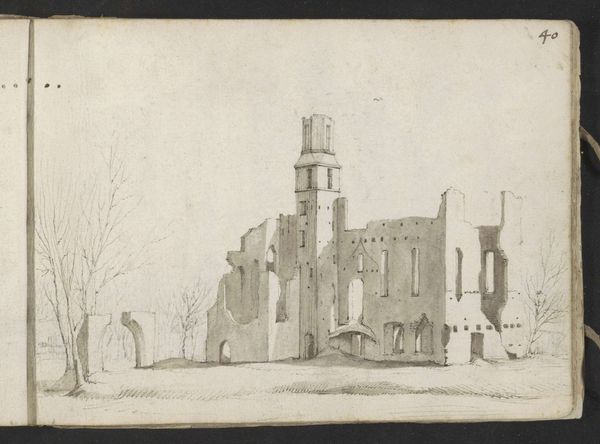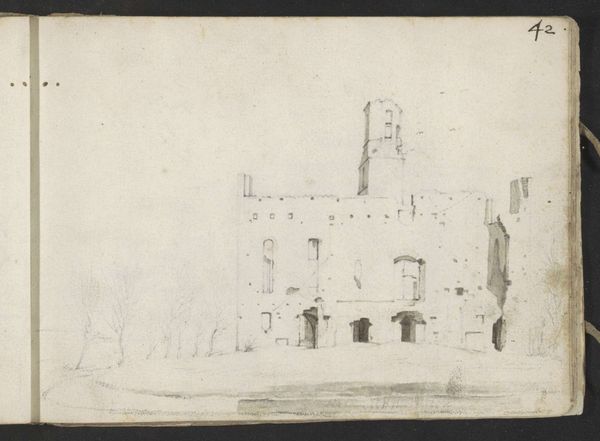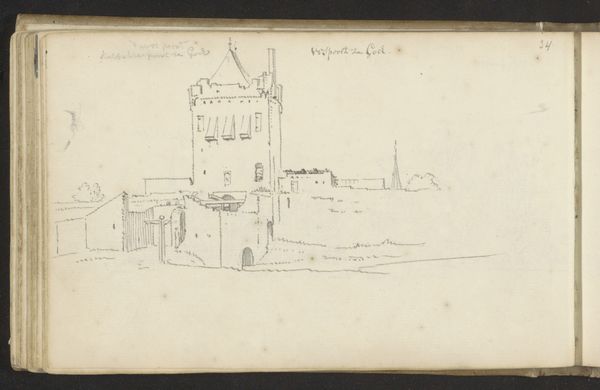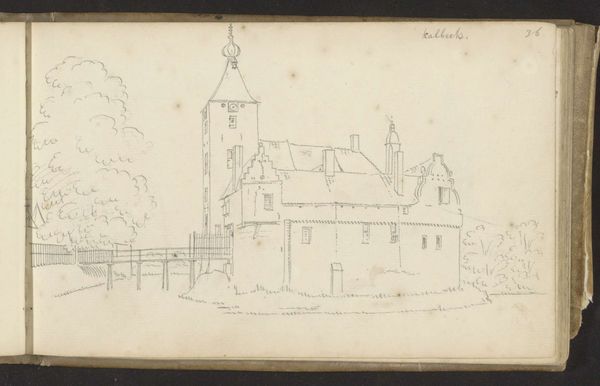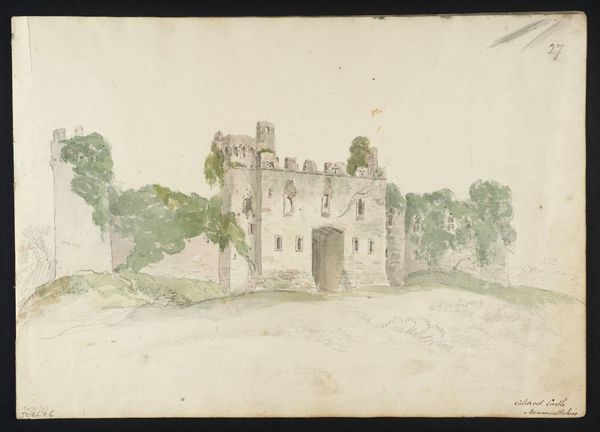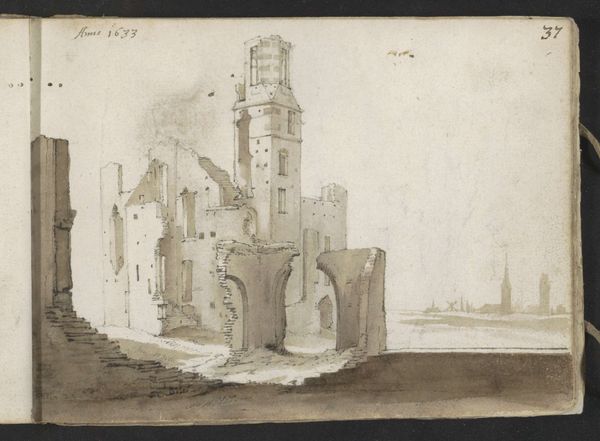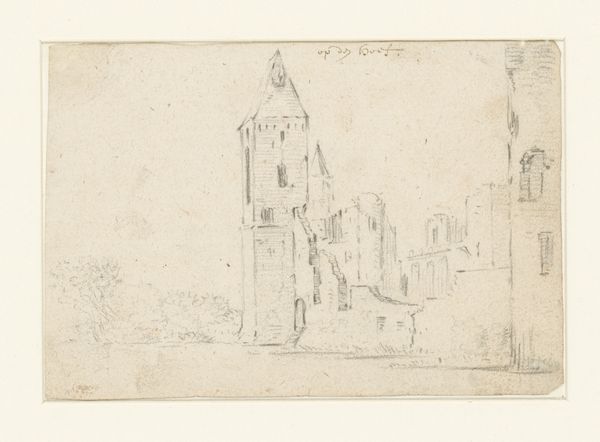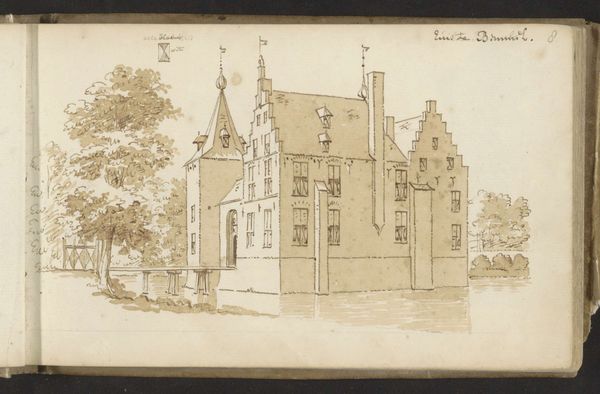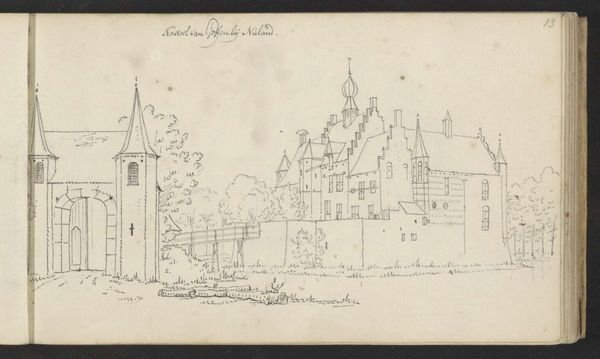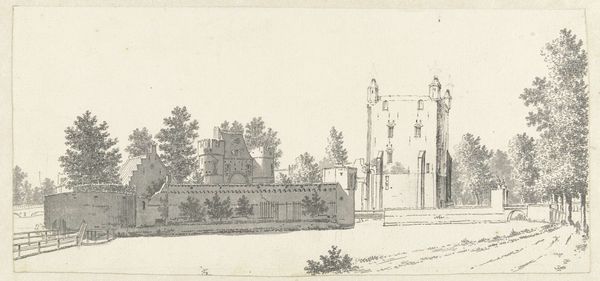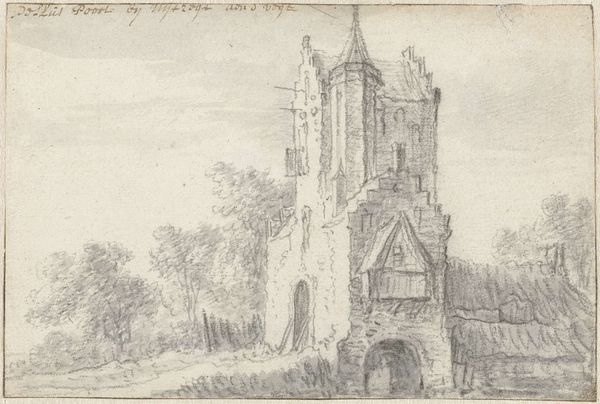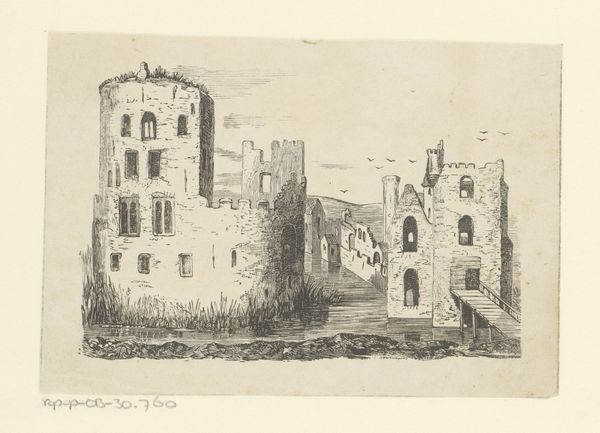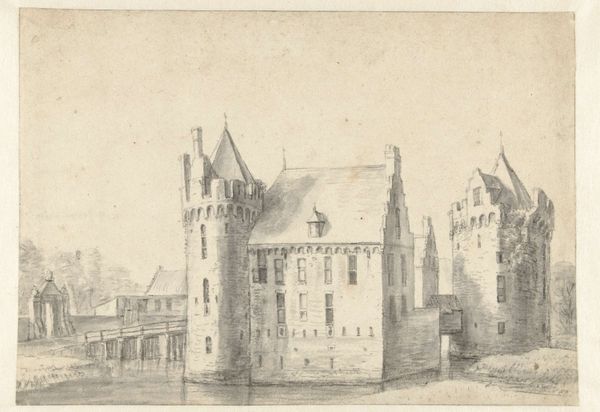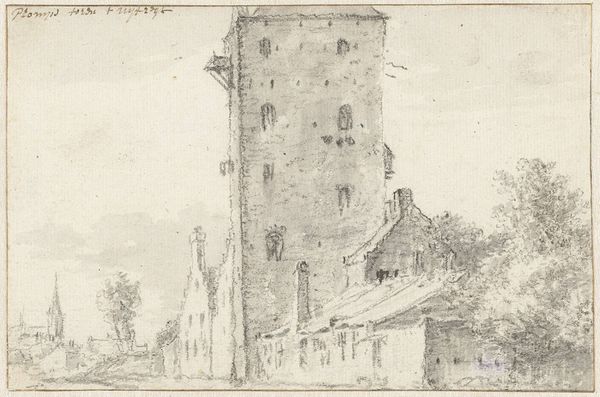
drawing, ink
#
drawing
#
aged paper
#
toned paper
#
quirky sketch
#
dutch-golden-age
#
sketch book
#
landscape
#
personal sketchbook
#
ink
#
sketchwork
#
pen-ink sketch
#
sketchbook drawing
#
cityscape
#
storyboard and sketchbook work
#
sketchbook art
#
realism
Copyright: Rijks Museum: Open Domain
Editor: We are looking at "Ruïne van Huis Kranenburg," a drawing from circa 1633-1634 by Gerard ter Borch II, housed at the Rijksmuseum. It is a pen-and-ink sketch on toned paper depicting the ruins of a building. I am struck by the stark contrast between the fragility of the lines and the imposing subject matter. What is your take on it? Curator: Well, as a historian, I find this work incredibly interesting in the context of the Dutch Golden Age. Ruins were a popular motif. What does it signify to portray a ruined castle like Kranenburg during this period? Is it simply about aesthetics? Or might it have been about something more, say, social commentary? Editor: Hmm, social commentary... It seems pretty straightforward. Is it that the Dutch liked things "as is?" Curator: Think about the newly independent Dutch Republic at that time. The Eighty Years' War against Spain had just concluded, and many grand structures, like castles associated with feudal power, had been destroyed. Was the choice of a ruined castle perhaps a subtle commentary on the rejection of the old aristocratic order? A sign of things changing or transitioning? Editor: That’s interesting. So, it's not just a depiction of a ruined building, it’s symbolic. Was Ter Borch making a statement? Curator: Possibly. The politics of imagery are rarely straightforward, and this drawing exists within a market for such imagery. Did Ter Borch choose this subject matter or was it what was fashionable for sale at the time? It's a window into how societal values were evolving and being reflected – and perhaps shaped – through art. Do you see any elements reflecting Dutch identity in the landscape itself? Editor: It seems to me that the lines look very realistic to what this specific construction must have looked like, without trying to make any overt commentary. Curator: Precisely! It may very well not be overtly trying to make commentary. Thank you, it has me questioning whether our assumptions of historical weight might get ahead of seeing it in its raw form. Editor: Thank you for putting Dutch Golden Age society into perspective. I'll never look at a ruined castle the same way.
Comments
No comments
Be the first to comment and join the conversation on the ultimate creative platform.
